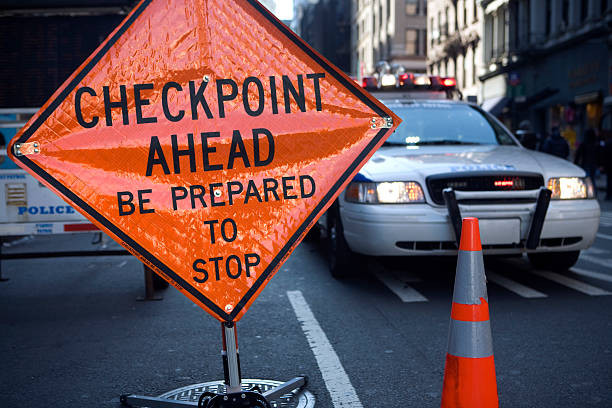Navigating the Legal Terrain: The Perils of Unlicensed Driving in Texas
Introduction:
Navigating the legal landscape of Texas without a valid driver's license is a journey fraught with potential pitfalls and legal complications. Whether your license has quietly expired, been entangled in bureaucratic issues, or been suspended or revoked due to infractions or serious offenses, each scenario carries its own set of risks and consequences. The ease with which one can overlook a license renewal amidst life's busyness cannot be understated, yet the repercussions of such an oversight are far from trivial, often resulting in significant fines if caught. Similarly, issues such as unpaid traffic fines, unresolved court matters, or administrative oversights can invalidate your driving privileges, creating a snowball effect of legal troubles if not addressed promptly. The stakes are even higher for those caught driving on a suspended or revoked license, a scenario that escalates to criminal offense levels in Texas, potentially leading to hefty fines, extended suspension periods, or even incarceration. The pathway to rectifying these issues involves a proactive approach—renewing expired licenses without delay, resolving any standing issues with diligence, and, in cases of suspension or revocation, following the necessary steps to reinstate driving privileges, such as attending court hearings, paying off fines, or completing mandated courses. Ignoring the legal requisites for driving not only jeopardizes your mobility but also exposes you to severe legal repercussions. It's imperative for drivers in Texas to ensure their licenses are current and free from encumbrances, consulting with the Texas Department of Public Safety or seeking legal counsel when in doubt about how to proceed. The complexities of navigating unlicensed driving in Texas underscore the importance of maintaining valid driving credentials, underscoring a commitment to safety, responsibility, and adherence to the law, ensuring that your journey on Texas roads is both legal and secure.
Expired Licenses: A Common Oversight
Resolving License Issues: Essential Steps for Compliance
Handling complications with your driver’s license, such as failures to pay fines or address court issues, is a critical task that requires prompt attention. Neglecting to resolve these issues can escalate to more severe legal consequences, including increased fines and possible suspension. Proactively managing these situations by contacting the necessary legal or governmental bodies to clear any holds or penalties is crucial. Ensuring your license is active and free from encumbrances not only keeps you on the right side of the law but also prevents the stress associated with compounded legal troubles. In Texas, staying vigilant about your driver’s license status and tackling any issues head-on is essential for maintaining your driving privileges and avoiding potential roadblocks in your daily commute.
Resolving License Issues: Tackling Challenges to Maintain Legality
Sometimes, you might face certain challenges that can invalidate your driver's license, such as unpaid fines or unresolved court issues. It's essential to address these problems as soon as possible. Ignoring them can lead to more severe consequences, including additional penalties or even the suspension of your driving privileges. Proactively managing these issues by contacting the relevant authorities, fulfilling any legal obligations, and clearing up any misunderstandings is crucial. Doing so not only helps restore your license but also ensures that you can continue to drive legally without facing future disruptions.
Navigating Serious Consequences: The Realities of Suspended or Revoked Licenses
In Texas, driving with a suspended or revoked license ranks as one of the more severe legal infractions. Typically stemming from a history of multiple violations, DUI offenses, or other significant legal transgressions, operating a vehicle under such conditions is classified as a criminal offense. The ramifications of this are far-reaching and severe, potentially including substantial fines, an extended period of suspension, or even time behind bars. This level of legal consequence underscores the importance of adhering to traffic laws and maintaining a valid license. For those facing suspension or revocation, it's critical to understand the steps necessary to reinstate driving privileges legally and safely, thereby avoiding further legal complications and ensuring roadway safety for all.
Steps to Legitimize Your Driving Status
The safest course of action is to ensure your driver's license is active and compliant with regulations. If it’s expired, prioritize its renewal. Facing a suspension or revocation? It’s imperative to understand and undertake the necessary steps to reinstate your driving privileges, which might include settling fines, attending required sessions, or navigating the judicial system.
Driving without a license in Texas is a gamble not worth taking. Staying informed about and compliant with driving regulations is crucial. If you find yourself uncertain about your license status or how to remedy issues, it’s wise to consult the Texas Department of Public Safety or a legal advisor.
Concluding Advice: Maintaining Valid Licensure with Get Drivers Ed
In summary, the consequences of driving without a valid license in Texas can be severe and far-reaching. Whether your license is expired, suspended, or revoked, taking proactive steps to address these issues is crucial. By ensuring your driver's license is always valid, you safeguard your ability to freely navigate Texas roads without the burden of legal repercussions. Get Drivers Ed can assist you in this process; our comprehensive online courses and resources provide you with the necessary information and guidance to understand and meet Texas driving regulations. Stay ahead of potential issues by keeping your license current and taking advantage of the educational offerings at Get Drivers Ed. With the right preparation and knowledge, you can drive confidently and legally, knowing you are fully compliant with Texas law.

